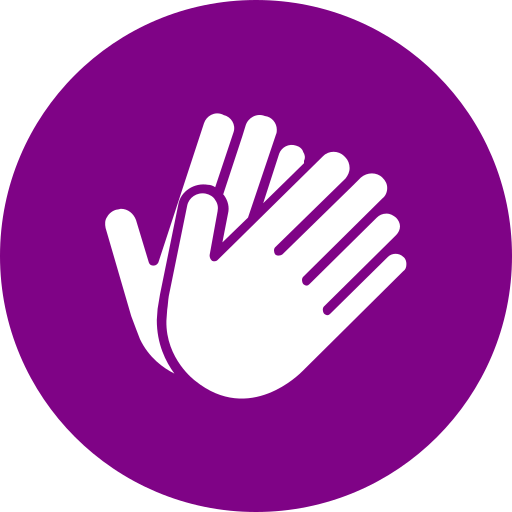Introduction to Solid Foods: A Guide for Parents
Introducing solid foods to your baby is an exciting milestone, but it can also feel overwhelming for new parents. Understanding when and how to introduce solids is crucial for your baby's health, development, and transition from breast milk or formula to a varied diet. Here’s a guide to help you navigate this important stage.
When to Start Solid Foods?
The American Academy of Pediatrics (AAP) recommends introducing solid foods around 6 months of age. At this age, babies' digestive systems are mature enough to handle solids, and they have developed the necessary physical skills, such as the ability to sit up and control head movements.
Signs That Your Baby is Ready for Solids
Look for these signs to determine if your baby is ready:
Sitting up with minimal support: This ensures they can safely swallow food.
Good head control: Babies need to hold their head steady when sitting up.
Curiosity about food: If your baby watches you eat with interest or seems eager to try new foods, it might be a sign they’re ready.
Loss of the tongue-thrust reflex: This reflex pushes food out of the mouth. By 6 months, it typically fades, allowing babies to move food to the back of their mouth for swallowing.
First Foods
Start with simple, single-ingredient foods that are easy to digest. Here are some common first foods:
Rice cereal: Fortified with iron, rice cereal is often the first solid food. Start with a thin consistency and gradually thicken as your baby gets used to solids.
Pureed fruits: Apples, pears, bananas, and peaches are excellent first foods. These can be pureed to a smooth consistency.
Pureed vegetables: Sweet potatoes, carrots, and peas are great choices. Steam and blend them until smooth.
Pureed meats: If your baby is ready for proteins, start with finely pureed chicken or turkey.
How to Introduce Solid Foods
Start with small portions: Begin with just a teaspoon of food and gradually increase the amount.
Single ingredient foods: Introduce one new food at a time to monitor for any allergic reactions. Wait about 3-5 days before introducing a new food.
Consistency matters: Initially, puree foods to a smooth, runny consistency. As your baby gets used to eating solids, you can gradually increase the thickness.
Use a baby spoon: Babies can’t use regular utensils, so use a small, soft-tipped spoon designed for babies to avoid hurting their gums.
Foods to Avoid in the First Year
Honey: It can contain botulism spores, which can be dangerous for infants.
Whole nuts or large chunks of food: These pose a choking hazard.
Salt and sugar: Avoid adding salt and sugar to your baby’s food. Their kidneys aren’t mature enough to handle excessive salt, and sugar is unnecessary at this stage.
Signs Your Baby Is Full
Your baby may stop eating when they're full. Look for signs such as:
Turning their head away
Closing their mouth tightly
Spitting food out
Common Concerns
Choking: Ensure your baby is sitting upright during feeding and always supervise them. Avoid foods that are hard or round (like grapes or raw carrots) until your baby is older.
Food allergies: Introduce potential allergens like eggs, peanuts, and dairy gradually, and consult your pediatrician if you have concerns.
Constipation: If your baby seems constipated after starting solids, offer water or fruit purees like prunes to help with digestion.
Beyond the First Foods
By around 8-10 months, you can introduce more textured foods, such as mashed fruits and vegetables, small soft pieces of pasta, scrambled eggs, and well-cooked meat. Encourage your baby to start self-feeding with soft finger foods.
The Role of Breast Milk or Formula
Breast milk or formula should remain your baby’s primary source of nutrition during the first year. Solid foods at this stage are complementary and not replacements for milk, which continues to provide essential nutrients.
Conclusion
The transition to solid foods is an exciting time in your baby’s development, but it’s important to be patient and flexible. Allow your baby to explore different flavors and textures at their own pace, and continue to prioritize their health and safety by offering appropriate foods and textures. As always, consult your pediatrician if you have concerns about your baby’s nutrition or developmental milestones.
By taking it one step at a time and offering a variety of healthy foods, you’re setting the foundation for a lifetime of healthy eating habits.
Introduction to Solid Foods: A Guide for Parents
Introducing solid foods to your baby is an exciting milestone, but it can also feel overwhelming for new parents. Understanding when and how to introduce solids is crucial for your baby's health, development, and transition from breast milk or formula to a varied diet. Here’s a guide to help you navigate this important stage.
When to Start Solid Foods?
The American Academy of Pediatrics (AAP) recommends introducing solid foods around 6 months of age. At this age, babies' digestive systems are mature enough to handle solids, and they have developed the necessary physical skills, such as the ability to sit up and control head movements.
Signs That Your Baby is Ready for Solids
Look for these signs to determine if your baby is ready:
Sitting up with minimal support: This ensures they can safely swallow food.
Good head control: Babies need to hold their head steady when sitting up.
Curiosity about food: If your baby watches you eat with interest or seems eager to try new foods, it might be a sign they’re ready.
Loss of the tongue-thrust reflex: This reflex pushes food out of the mouth. By 6 months, it typically fades, allowing babies to move food to the back of their mouth for swallowing.
First Foods
Start with simple, single-ingredient foods that are easy to digest. Here are some common first foods:
Rice cereal: Fortified with iron, rice cereal is often the first solid food. Start with a thin consistency and gradually thicken as your baby gets used to solids.
Pureed fruits: Apples, pears, bananas, and peaches are excellent first foods. These can be pureed to a smooth consistency.
Pureed vegetables: Sweet potatoes, carrots, and peas are great choices. Steam and blend them until smooth.
Pureed meats: If your baby is ready for proteins, start with finely pureed chicken or turkey.
How to Introduce Solid Foods
Start with small portions: Begin with just a teaspoon of food and gradually increase the amount.
Single ingredient foods: Introduce one new food at a time to monitor for any allergic reactions. Wait about 3-5 days before introducing a new food.
Consistency matters: Initially, puree foods to a smooth, runny consistency. As your baby gets used to eating solids, you can gradually increase the thickness.
Use a baby spoon: Babies can’t use regular utensils, so use a small, soft-tipped spoon designed for babies to avoid hurting their gums.
Foods to Avoid in the First Year
Honey: It can contain botulism spores, which can be dangerous for infants.
Whole nuts or large chunks of food: These pose a choking hazard.
Salt and sugar: Avoid adding salt and sugar to your baby’s food. Their kidneys aren’t mature enough to handle excessive salt, and sugar is unnecessary at this stage.
Signs Your Baby Is Full
Your baby may stop eating when they're full. Look for signs such as:
Turning their head away
Closing their mouth tightly
Spitting food out
Common Concerns
Choking: Ensure your baby is sitting upright during feeding and always supervise them. Avoid foods that are hard or round (like grapes or raw carrots) until your baby is older.
Food allergies: Introduce potential allergens like eggs, peanuts, and dairy gradually, and consult your pediatrician if you have concerns.
Constipation: If your baby seems constipated after starting solids, offer water or fruit purees like prunes to help with digestion.
Beyond the First Foods
By around 8-10 months, you can introduce more textured foods, such as mashed fruits and vegetables, small soft pieces of pasta, scrambled eggs, and well-cooked meat. Encourage your baby to start self-feeding with soft finger foods.
The Role of Breast Milk or Formula
Breast milk or formula should remain your baby’s primary source of nutrition during the first year. Solid foods at this stage are complementary and not replacements for milk, which continues to provide essential nutrients.
Conclusion
The transition to solid foods is an exciting time in your baby’s development, but it’s important to be patient and flexible. Allow your baby to explore different flavors and textures at their own pace, and continue to prioritize their health and safety by offering appropriate foods and textures. As always, consult your pediatrician if you have concerns about your baby’s nutrition or developmental milestones.
By taking it one step at a time and offering a variety of healthy foods, you’re setting the foundation for a lifetime of healthy eating habits.
















